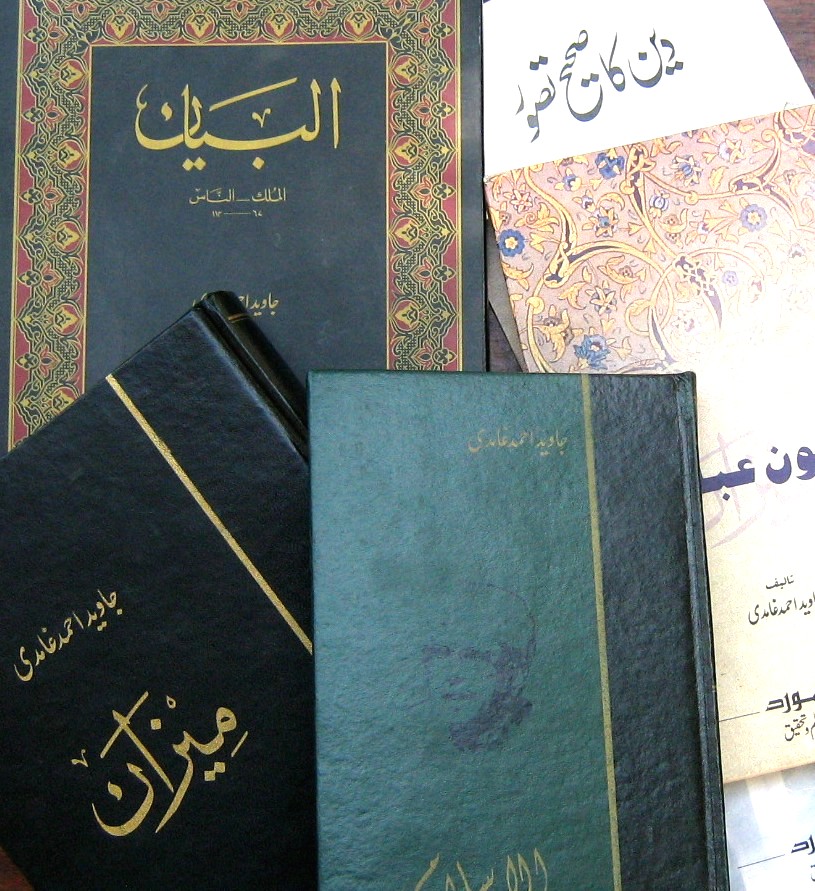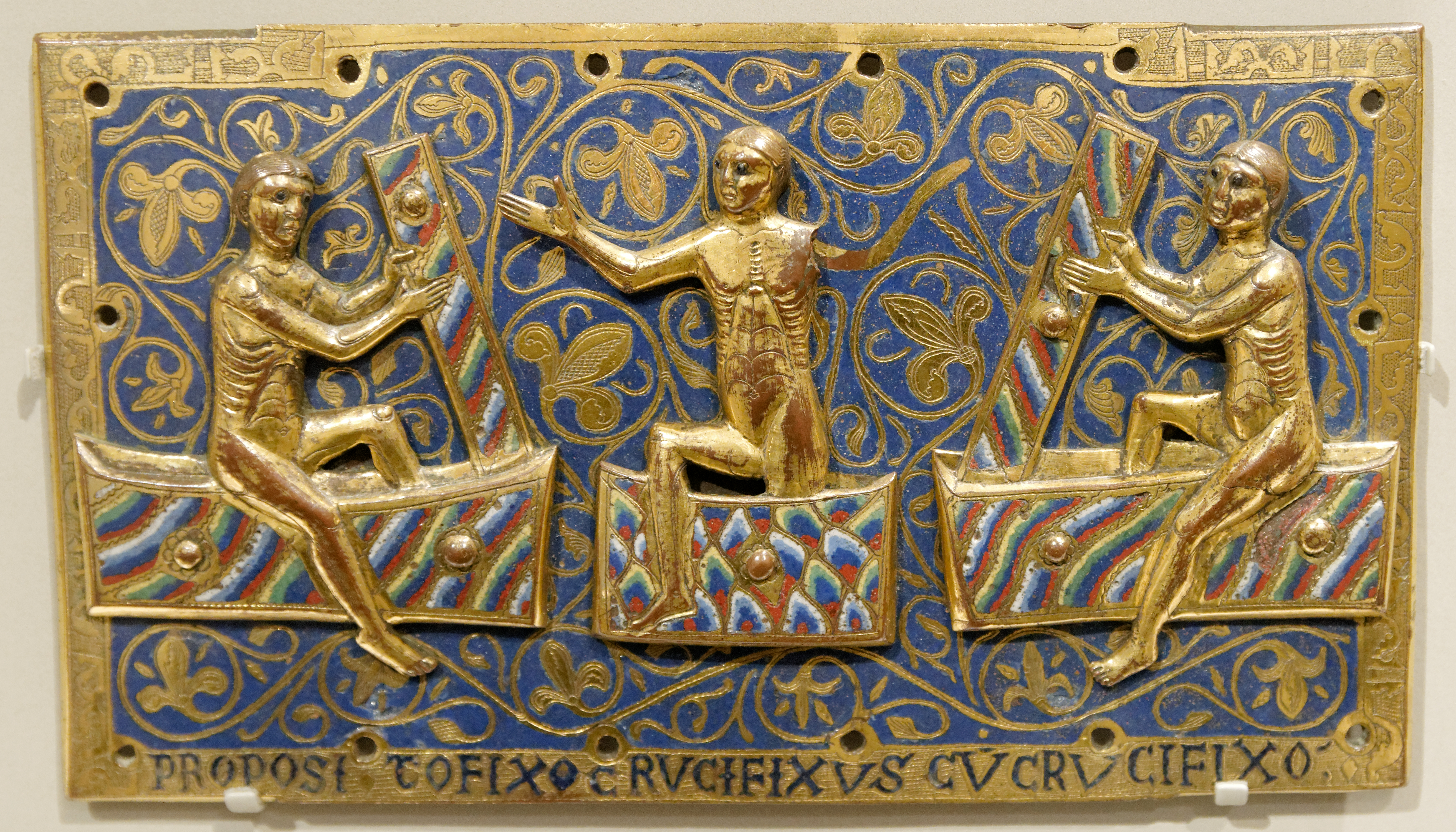|
At-Taghabun
At-Taghābun ( ar, التغابن, "Loss, Deprivation") is the 64th surah of the Quran with 18 verses. This Medinan surah opens with the words of glorification of God ( Allah in Arabic), it is part of Al-Musabbihat group. The theme of this surah is an invitation to the Faith, obedience (to God) and the teaching of good morals, contrasting with the previous surah, Al-Munafiqun, which was concerned with hypocrisy and the lack of Iman. Summary The sequence followed is that the first four verses are addressed to all human-kind, verses 5-10 to those men who do not believe in the invitation of the Qur'an, and verses 11-18 to those who accept and believe in this invitation. Ayat (verses) *1 All things in heaven and earth praise God *2 God hath fore-ordained men to be either believers or unbelievers *3-4 God, the Creator, knows all things - what is in the universe and on earth, what you conceal and what you declare *5-6 Former nations destroyed for their unbelief *7 Unbelief will not p ... [...More Info...] [...Related Items...] OR: [Wikipedia] [Google] [Baidu] |
Al-Musabbihat
Al-Musabbihat ( ar, الْمُسَبِّحَاتِ) are those suras of the Quran that begin with Allah's (Glory be to him) glorification 'Subhana', 'Sabbaha', and 'Yusabbihu'. According to Islamic scholar Muhammad Shafi Deobandi (1897–1976) the collective name of the series Al-Musabbihat refers to the following five or seven Surahs: * Al-Hadid * Al-Hashr * As-Saff * Al-Jumua and * At-Taghabun Sometime it also includes: * Al-Isra * Al-Ala Among the seven Surahs, the first three, namely Al-Hadid, Al-Hashr and As-Saff commence with the past perfect tense 'sabbaha' ''"purity has been proclaimed"'' whilst the last two, namely Al-Jumu'ah and At-Taghabun commence with the imperfect tense yusabbihu urity is proclaimed This implies that the purity of Allah should be declared at all times, the past, the present and the future. It is recorded in hadith that Prophet Muhammad used to recite Al-Musabbihat before he went to sleep and said: "Indeed there is an Ayah in them that is bett ... [...More Info...] [...Related Items...] OR: [Wikipedia] [Google] [Baidu] |
At-Talaq
"Divorce" ( ar, الطلاق, ''aṭ-talāq'') is the 65th chapter of the Qur'an with 12 verses ('' ayat''). At-Talaq is not only the name of this Surah but also the title of its subject matter, as it contains commandments about Talaq (divorce) itself. Abdullah ibn Masud (''died'' c.653) reportedly described it as ''the shorter surah An-Nisa''. The surah also defines the time period of mourning (''iddah'') to be three menstruation periods. For pre-menarche girls and for post-menopause women - three months. In case of pregnancy, after the delivery of the child. After addressing the topic of divorce and a number of other resulting family issues in first 7 verses, the surah then strongly urges people to observe God’s regulations and guidance, and reminded the fate of earlier disobedient people that the apostate and disobedient were chastised for their sin. The 11th verse describes the required attitude of the true believers that they exhort to faith in messenger and the re ... [...More Info...] [...Related Items...] OR: [Wikipedia] [Google] [Baidu] |
Al-Munafiqoon
The Hypocrites ( ar, المنافقون, ''al-munāfiqūn'') is the 63rd chapter (surah) of the Qur'an, with 11 verses. Almost all of the chapter is preserved in the Ṣan‘ā’1 lower text. Summary The chapter deals with the phenomenon of hypocrisy. It criticizes hypocrisy and condemns the hypocrites. It also exhorts the Believers to be sincere in their faith and make charity. According to Muslim theologian, Javed Ahmad Ghamidi, the theme of Qur'an 63 is to inform the Muslims that the Hypocrites are absolute liars. Amin Ahsan Islahi elaborates that: :This surah is a supplement to Surah Jum`ah, the previous surah. It can be divided into two sections. The first one consists of eight verses, while the last three verses constitute the second section. In the first section, the character of the hypocrites is evaluated and shown that their real ailment is their lust for worldly riches. In the second section, Muslims are warned that the love of wealth and children should not make ... [...More Info...] [...Related Items...] OR: [Wikipedia] [Google] [Baidu] |
Al-Munafiqun
The Hypocrites ( ar, المنافقون, ''al-munāfiqūn'') is the 63rd chapter (surah) of the Qur'an, with 11 verses. Almost all of the chapter is preserved in the Ṣan‘ā’1 lower text. Summary The chapter deals with the phenomenon of hypocrisy. It criticizes hypocrisy and condemns the hypocrites. It also exhorts the Believers to be sincere in their faith and make charity. According to Muslim theologian, Javed Ahmad Ghamidi, the theme of Qur'an 63 is to inform the Muslims that the Hypocrites are absolute liars. Amin Ahsan Islahi elaborates that: :This surah is a supplement to Surah Jum`ah, the previous surah. It can be divided into two sections. The first one consists of eight verses, while the last three verses constitute the second section. In the first section, the character of the hypocrites is evaluated and shown that their real ailment is their lust for worldly riches. In the second section, Muslims are warned that the love of wealth and children should not make ... [...More Info...] [...Related Items...] OR: [Wikipedia] [Google] [Baidu] |
Infidel
An infidel (literally "unfaithful") is a person accused of disbelief in the central tenets of one's own religion, such as members of another religion, or the irreligious. Infidel is an ecclesiastical term in Christianity around which the Church developed a body of theology that deals with the concept of infidelity, which makes a clear differentiation between those who were baptized and followed the teachings of the Church versus those who are outside the faith. The term ''infidel'' was used by Christians to describe those perceived as the enemies of Christianity. After the ancient world, the concept of otherness, an exclusionary notion of the outside by societies with more or less coherent cultural boundaries, became associated with the development of the monotheistic and prophetic religions of Judaism, Christianity, and Islam (cf. pagan). In modern literature, the term infidel includes in its scope atheists, polytheists, animists, heathens, and pagans. A willingness to ident ... [...More Info...] [...Related Items...] OR: [Wikipedia] [Google] [Baidu] |
Sayid Qutb
Sayyid 'Ibrāhīm Ḥusayn Quṭb ( or ; , ; ar, سيد قطب إبراهيم حسين ''Sayyid Quṭb''; 9 October 1906 – 29 August 1966), known popularly as Sayyid Qutb ( ar, سيد قطب), was an Egyptian author, educator, Islamic scholar, theorist, revolutionary, poet, and a leading member of the Egyptian Muslim Brotherhood in the 1950s and 1960s. In 1966, he was convicted of plotting the assassination of Egyptian President Gamal Abdel Nasser and was executed by hanging. He is considered as "the Father of Salafi jihadism", the religio-political doctrine that underpins the ideological roots of global jihadist organisations such as al-Qaeda and ISIL. Author of 24 books, with around 30 books unpublished for different reasons (mainly destruction by the state), and at least 581 articles, including novels, literary arts critique and works on education, he is best known in the Muslim world for his work on what he believed to be the social and political role of Islam, pa ... [...More Info...] [...Related Items...] OR: [Wikipedia] [Google] [Baidu] |
Iman (concept)
Iman ( ''ʾīmān'', lit. faith or belief) in Islamic theology denotes a believer's faith in the metaphysical aspects of Islam.Farāhī, Majmū‘ah Tafāsīr, 2nd ed. (Faran Foundation, 1998), 347. Its most simple definition is the belief in the six articles of faith, known as ''arkān al-īmān''. The term ''iman'' has been delineated in both the Quran and ''hadith''. According to the Quran, iman must be accompanied by righteous deeds and the two together are necessary for entry into Paradise. In the ''hadith'', ''iman'' in addition to ''Islam'' and '' ihsan'' form the three dimensions of the Islamic religion. There exists a debate both within and outside Islam on the link between faith and reason in religion, and the relative importance of either. Some scholars contend that faith and reason spring from the same source and hence must be harmonious. Etymology In Arabic, ''iman'' ( ''ʾīmān'') means "" or "". It is the verbal noun of آمَنَ, "to have faith" or "to ... [...More Info...] [...Related Items...] OR: [Wikipedia] [Google] [Baidu] |
Muslims
Muslims ( ar, المسلمون, , ) are people who adhere to Islam, a monotheistic religion belonging to the Abrahamic tradition. They consider the Quran, the foundational religious text of Islam, to be the verbatim word of the God of Abraham (or '' Allah'') as it was revealed to Muhammad, the main Islamic prophet. The majority of Muslims also follow the teachings and practices of Muhammad ('' sunnah'') as recorded in traditional accounts (''hadith''). With an estimated population of almost 1.9 billion followers as of 2020 year estimation, Muslims comprise more than 24.9% of the world's total population. In descending order, the percentage of people who identify as Muslims on each continental landmass stands at: 45% of Africa, 25% of Asia and Oceania (collectively), 6% of Europe, and 1% of the Americas. Additionally, in subdivided geographical regions, the figure stands at: 91% of the Middle East–North Africa, 90% of Central Asia, 65% of the Caucasus, 42% of Southeast Asi ... [...More Info...] [...Related Items...] OR: [Wikipedia] [Google] [Baidu] |
Javed Ahmad Ghamidi
Javed Ahmad Ghamidi ( ur, , translit=Jāvēd Aḥmad Ghāmidī; April 7, 1952) is a Pakistani philosopher, educationist, and scholar of Islam. He is also the founding President of Al-Mawrid Institute of Islamic Sciences and its sister organisation ''Danish Sara''. He became a member of the Council of Islamic Ideology (responsible for giving legal advice on Islamic issues to the Pakistani Government and the country's Parliament) on 28 January 2006, where he remained for a couple of years. He also taught Islamic studies at the Civil Services Academy for more than a decade from 1979 to 1991. He was also a student of Islamic scholar and exegete, Amin Ahsan Islahi. He is running an intellectual movement similar to Wasatiyyah, on the popular electronic media of Pakistan.Masud(2007) Currently he is Principal Research Fellow and Chief Patron of Ghamidi Center of Islamic Learning in United States. Javed Ahmad Ghamidi was named in ''The Muslim 500'' (The World's Most Influential Muslims) ... [...More Info...] [...Related Items...] OR: [Wikipedia] [Google] [Baidu] |
Mu'min
''Muʾmin'' or ''mumin'' ( ar, مؤمن, muʾmin; feminine ) is an Arabic and Islamic term, frequently referenced in the Quran, meaning "believer". It denotes a person who has complete submission to the will of God and has faith firmly established in his heart, i.e. a "faithful Muslim". Also, it is used as a name and one of the names of God in Islam. The opposite term of '' īmān'' (faith) is ''kufr'' (unbelief), and the opposite of ''muʾmin'' is '' kāfir'' (unbeliever). In the Quran The Quran states: (An-Nisa ) O you who believe! Believe in Allah, and His Messenger (Muhammad), and the Book (the Quran) which He has sent down to His Messenger, and the Scripture which He sent down to those before (him), and whosoever disbelieves in Allah, His Angels, His Books, His Messengers, and the Last Day, then indeed he has strayed far away. This verse addresses the believers, exhorting them to believe, implying multiple stages of belief. Difference between Muslim and ''Muʾmin'' ... [...More Info...] [...Related Items...] OR: [Wikipedia] [Google] [Baidu] |
Apostle
An apostle (), in its literal sense, is an emissary, from Ancient Greek ἀπόστολος (''apóstolos''), literally "one who is sent off", from the verb ἀποστέλλειν (''apostéllein''), "to send off". The purpose of such sending off is usually to convey a message, and thus "messenger" is a common alternative translation; other common translations include "ambassador" and "envoy". The term in Ancient Greek also has other related meanings. The term derives from the Ancient Greek. In Christianity, the term was used in the New Testament for Jesus' Twelve Apostles (including Peter, James, and John), as well as a wider group of early Christian figures, including Paul, Barnabas, and Junia. The term is also used to designate an important missionary of Christianity to a region, e.g. the " apostle of Germany". Some other religions use the term for comparable figures in their history. The word in this sense may be used metaphorically in various contexts, but is mostly found ... [...More Info...] [...Related Items...] OR: [Wikipedia] [Google] [Baidu] |
Resurrection
Resurrection or anastasis is the concept of coming back to life after death. In a number of religions, a dying-and-rising god is a deity which dies and is resurrected. Reincarnation is a similar process hypothesized by other religions, which involves the same person or deity coming back to live in a different body, rather than the same one. The resurrection of the dead is a standard eschatological belief in the Abrahamic religions. As a religious concept, it is used in two distinct respects: a belief in the resurrection of individual souls that is current and ongoing ( Christian idealism, realized eschatology), or else a belief in a singular resurrection of the dead at the end of the world. Some believe the soul is the actual vehicle by which people are resurrected. The death and resurrection of Jesus is a central focus of Christianity. Christian theological debate ensues with regard to what kind of resurrection is factual – either a ''spiritual'' resurrection with ... [...More Info...] [...Related Items...] OR: [Wikipedia] [Google] [Baidu] |






